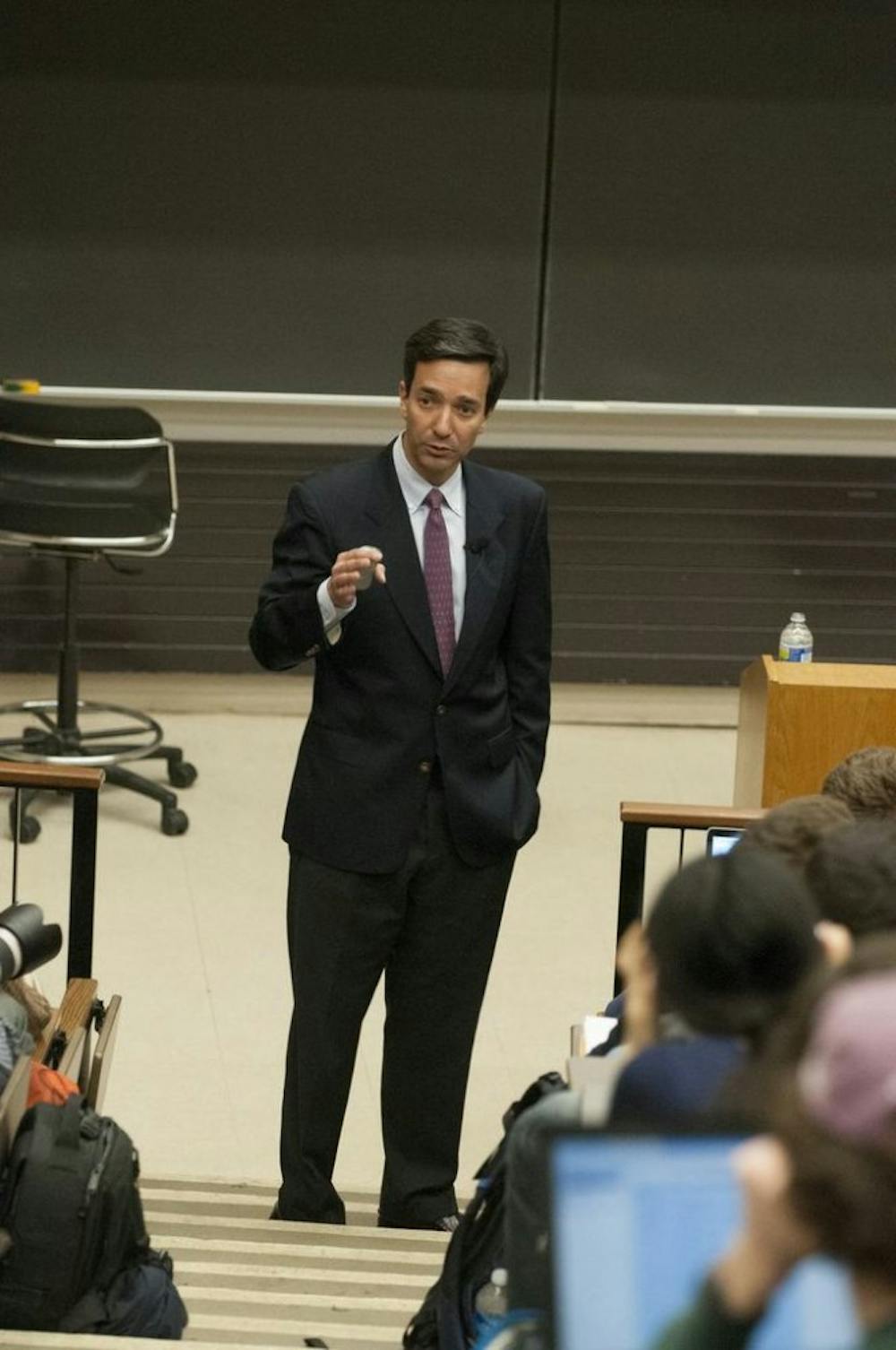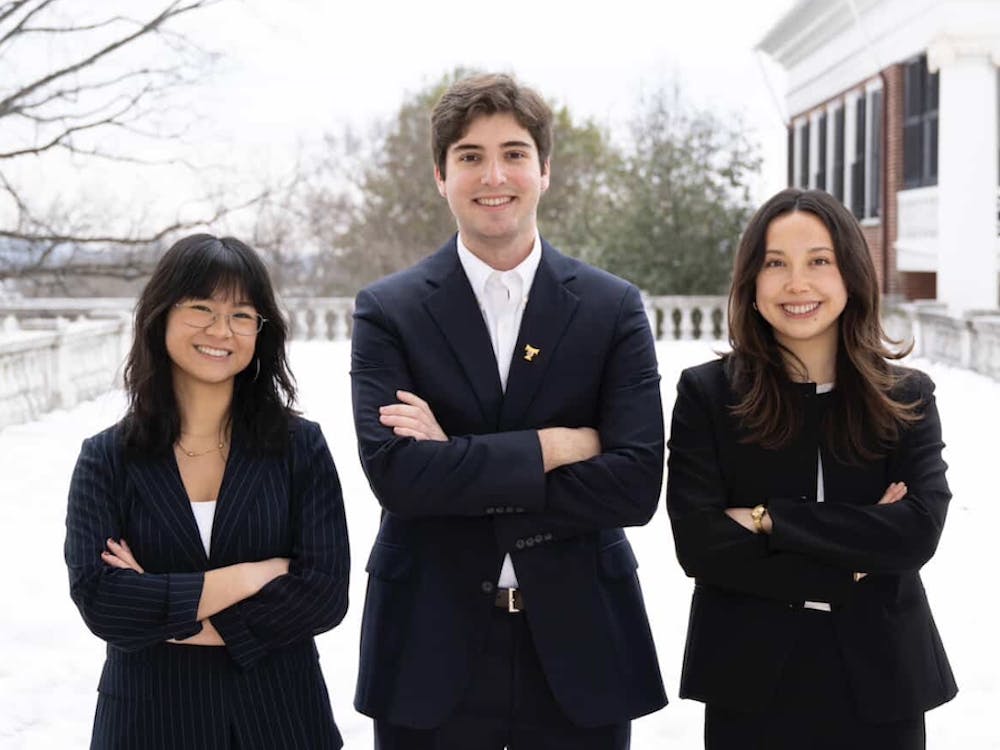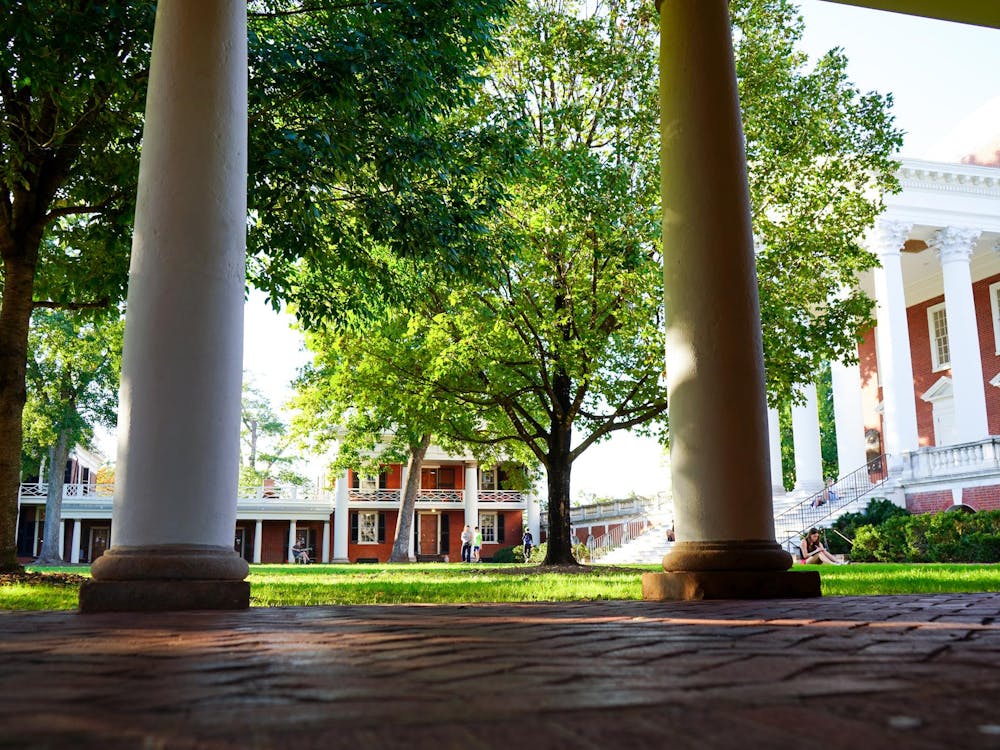Former Puerto Rico Gov. Luis Fortuño spoke to Politics Prof. Larry Sabato’s American Government class Monday about the need for the Republican party to make itself more attractive to Hispanic voters, especially after Mitt Romney’s loss in the 2012 election.
Fortuño showed slides from a presentation he recently gave to Republican leaders in Congress including data from Hispanic voters in the 2012 election showing a general feeling among Hispanic voters that the GOP does not respect their values and concerns.
“The Republican brand is seriously damaged and some things ought to be done to address the problem,” Fortuño said.
Fortuño said 50,000 Hispanics turn 18 and become eligible to vote every month, so the Republican Party’s disconnect with that demographic is a growing concern for party leaders. The GOP can align with Hispanic voters who believe government should limit spending, lower taxes and promote opportunity, he said.
Florida, Colorado, New Mexico and Nevada could be key swing states in future elections, he said, noting the GOP would need to appeal to those states’ sizable Hispanic populations if it hopes to gain the upper hand in the Electoral College.
“There is no space for discussion of some of these issues if [Republicans’ public] statements are exclusive or even derogatory at times,” Fortuño said.
Fortuño offered a 10-item list titled “Agenda for the Next Decade,” with ideas for change in many areas to attract Hispanic voters to the Republican party. Among his points were simplifying the tax code, controlling the deficit, fixing the immigration system to control and promote legal immigration, and striving for true energy independence. Also on the list was addressing the issue of statehood for the Puerto Rican territory.
Puerto Rico has been a territory of the United States since 1898, but in a 2012 ballot referendum a majority of citizens voted against remaining a territory. A majority of those opposed to maintaining the status quo indicated they preferred full U.S. statehood. Of particular frustration for Puerto Ricans, Fortuño said, is that while the territory contributes more soldiers to the U.S. Army than 90 percent of states, citizens who live there cannot vote in presidential elections.
Fortuño served as Puerto Rico’s governor from 2008 to 2012, and was the first Republican to be elected since 1969.







